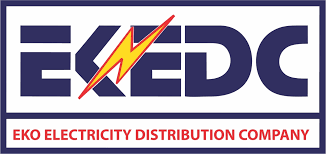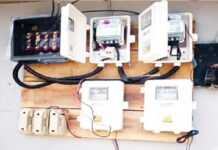As the name implies, rapid response means attending to a particular situation in a timely manner. Rapid response teams are teams that work round the clock to react swiftly quickly to a situation thereby forestalling or preventing further damage. Examples of this are seen in other sectors like banking, engineering, firefighting, and police.
In Nigeria, the public demands a consistent supply of electricity, whether for industrial, commercial, or household uses.
Due to the possibility of power supply disruptions owing to weather conditions, human error, or even equipment or system failure, end-users will undoubtedly have complaints. Inefficient response to these disruptions may extend the time when essential end-users are without power, and in critical circumstances, leaving the public without electricity for lengthy periods.
As a leading and customer-centric power utility company, Eko Electricity Distribution Company (EKEDC) has implemented further procedures to guarantee swift response to customer complaints and power supply outages. These are aimed at improving the quality of service to its esteemed customers.
By utilising cutting-edge technology and innovative processes, EKEDC’s proactive approach is aimed at minimising downtime – reducing the duration in which electricity supply is disrupted or unavailable. They have invested in various electrical assets and technologies to ensure zero or minimal downtime and set up the Rapid Response Squad to attend to outage and faults reports more swiftly.
The Rapid Response Squad (RRS) was created by the MD/CEO, Dr. Tinuade Sanda, in April 2022 as a unit under the Technical Operations department, primarily to oversee and ensure breakdown maintenance and faults are tracked and resolved within the stipulated Turnaround Time (TAT) as regulated by the Nigerian Electricity Regulatory Commission (NERC).
The Head, RRS Nasir Gbadegesin, stated that EKEDC’s goal for fault clearance and resolution for 33 kV and 11 kV is ten (10) and six (6) hours, respectively, pursuant to the NERC Order. The RRS collaborates with the Power System Control, the District Operators, and the Protection and Testing divisions to resolve faults quickly and effectively without compromising safety.
Additionally, he noted that the crew responds to any faults on the 33 kV feeder at the injection sub-stations and, if necessary, helps the Breakdown Maintenance team at the various districts to resolve the faults. The eleven (11) districts that make up EKEDC’s service area are Agbara, Apapa, Ajah, Ijora, Ibeju, Festac, Lekki Mushin, Orile, Ojo, and Islands.
With the use of predictive maintenance and advanced monitoring systems, which are employed to continuously track the performance of the grid. They can detect anomalies, fluctuations, or failures in real-time.
The Company has access to its distribution infrastructure, thanks to monitoring systems like the Supervisory Control and Data Acquisition/Distribution Management System (SCADA/DMS), which was launched in 2020. This gives the Disco access in real time to information regarding the current state of its technological assets and the areas that require attention.
EKEDC uses data analytics as a predictive maintenance technique to anticipate equipment failures. By identifying potential issues before they occur, they can schedule maintenance or repairs to prevent downtime.
Alternatively, there is the use of redundant systems, and backup power sources that are built to ensure a seamless transition in case of equipment failure or power outages. This redundancy helps to maintain a continuous power supply.
Also, communication with end-users must be timely and transparent. Eko Disco has made it mandatory to notify its stakeholders of scheduled maintenance or unforeseen outages, as well as providing anticipated restoration timelines, via its various social media platforms and customer engagement channels, tagged “Power Update.’
Eko Disco is also making conscious and continuous efforts to invest in upgrading and modernizing its infrastructure that helps reduce the likelihood of failures and improves the overall reliability of its network infrastructure.
Conclusively, by implementing these measures, they have proactively worked to achieve zero downtime, or at the very least keeping downtime to the barest minimum, ensuring a reliable supply of electricity to their customers and therefore ensuring a cordial relationship with its stakeholders and maintaining a positive brand image for the Organization. Like their mantra goes, Eko Disco is truly poised to keep empowering quality of lives of their stakeholders.

























